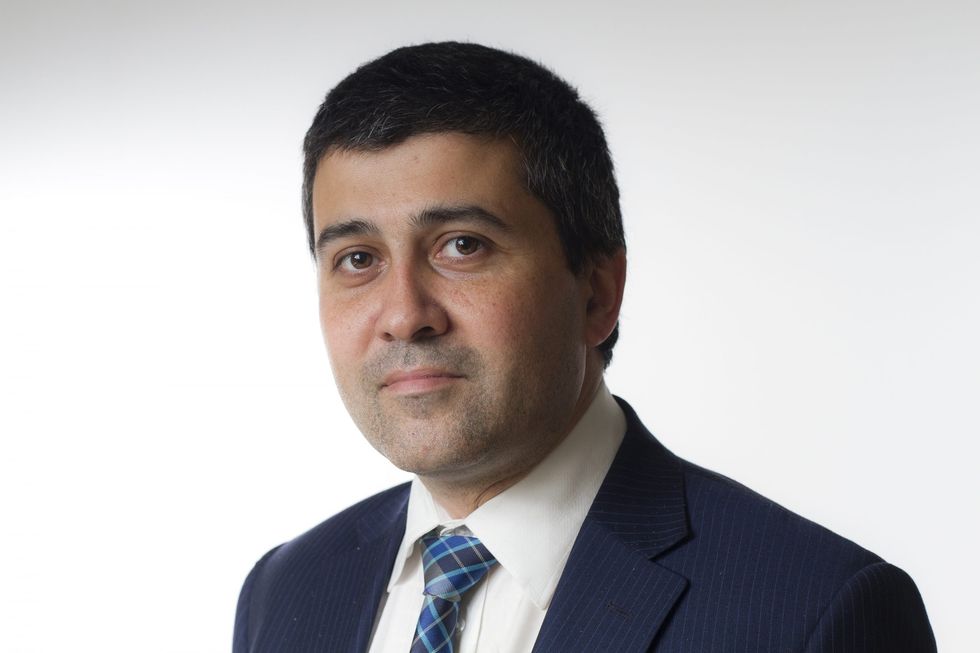AS PARLIAMENT returns from recess, the government will bring forward a new asylum bill to deliver the prime minister’s pledge to “stop the boats”.
The bill will say that nobody who comes to the UK via a third country deemed safe, such as France, will be eligible to claim asylum in the UK.
This feels like déjà vu – because the government said that was what last year’s asylum bill would do too. After last year’s Nationality and Borders Act, most people who cross the Channel are given a letter saying the government considers them inadmissible to claim asylum in the UK. But, then, a few months later, the government admits most of them to the UK asylum system. It has no choice, legally or practically, when it has nowhere else it can safely send them.
Downing Street says it wants the new law to give it “legally watertight” powers so it can detain and quickly deport all those who cross the Channel. But that is an impossible promise – for simple, practical reasons. The government does not have one-10th of the detention places it would need. And the UK cannot send people to another country without negotiating an agreement to do so. Other countries have sovereignty too.
Last Easter’s deportation deal with Rwanda was intended to solve this problem. So far, the government has sent £140 million to Rwanda, but it has not sent any asylum seekers. It could have cleared the large asylum backlog months ago for less than half of the cost.

Even if the courts eventually uphold the controversial plan, Rwanda could take around 200 people. Beyond the arguments in principle against it, the Rwanda policy is largely an expensive distraction when it comes to stopping the boats.
The government has lost control on asylum. The chaotic system is not working for anybody. Those seeking asylum are risking their lives making dangerous journeys across the Channel. The backlog means those with valid claims are waiting years for a decision, increasing the costs to the taxpayer. An increasingly heated, polarised and angry political argument about asylum often pits calls for control against appeals for compassion, while delivering neither.
Supporters of the Rwanda and mass detention schemes argue that their critics do not have alternatives. So this is an important moment for many voices across politics, faith and civic society to show that there are constructive alternatives to this chaotic failure.
A new British Future report, Control and Compassion1 sets out practical ideas for what an orderly, workable and humane asylum reform agenda would involve. There is no single magic bullet – but a few things are essential.
Safety in the Channel needs the UK and France to work together. It is good that the Rishi Sunak government has repaired the relationship with French president Emmanuel Macron.
But the new UK-France deal is too narrow. The governments say they are preventing a record number of attempted crossings – over 30,000 – but a record number got through too. What is needed is comprehensive co-operation to break the deadlock, with a serous negotiation about safe routes to the UK and safe returns to France.
For Britain to take a fair share, there needs to be a managed, legal route to get here. The British Future paper proposes piloting a new humanitarian visa.
Parliament would set a number of refugee visas annually, available at a select number of British embassies to give safe passage to the UK for those with a strong asylum claim. If the policy began with 40,000 visas, that could have a significant impact on the numbers taking dangerous journeys, especially if those countries of origin with the highest asylum acceptance rates were targeted.
The government also needs to deliver its plan to tackle the asylum backlog, overhauling the process to make rapid decisions about both the strongest and weakest cases much more quickly. A taskforce to clear the backlog would pay for itself within weeks – and allow resources to go into helping those with valid claims start their new life in Britain.
With fairer and faster decisions, there could be more and safer returns of those not granted protection. The government should bring back a voluntary returns programme, where people whose claims had failed could get advice about their options from civic society groups. The government, bizarrely, took that in-house – expecting those in this situation to contact the Home Office instead. Unsurprisingly, almost nobody does. Voluntary returns – more humane, much less expensive – have dried up.
Ever tougher rhetoric about impossible plans delivers neither control nor compassion. Instead, it stokes public frustration. It is time to move the debate on.
Combining control and compassion offers a practical way to get a grip and restore order. It can help ensure that the UK gives refugee protection safely to those who need it, while also starting to rebuild public confidence that Britain can manage asylum better, both for those coming here and the communities that they join.
1. www.britishfuture.org/control-and-compassion-report















 David Beckham wearing a David Austin Roses "King's Rose" speaks with King Charles III during a visit to the RHS Chelsea Flower Show at Royal Hospital Chelsea on May 20, 2025Getty Images
David Beckham wearing a David Austin Roses "King's Rose" speaks with King Charles III during a visit to the RHS Chelsea Flower Show at Royal Hospital Chelsea on May 20, 2025Getty Images

 Kurukshetra battlefield illustration
Kurukshetra battlefield illustration
 Chanakya
Chanakya  Shimla Agreement
Shimla Agreement Kargil War 1999
Kargil War 1999
‘UK asylum system needs control and compassion’
British Future report offers practical ideas for reforms